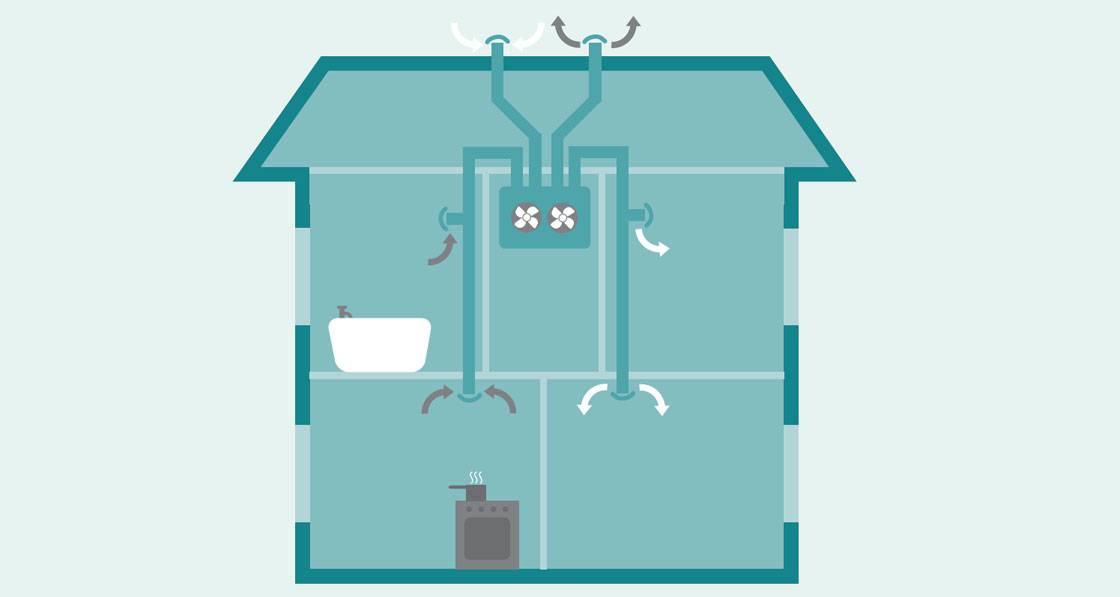
- Government
- Posted
Deep retrofit plans: the current state of play
The need for decisive movement on deep retrofit has never been more pronounced, given the twin needs for urgent, radical action to tackle the climate crisis and jobs-intensive stimulus at a time of great uncertainty caused by the pandemic. In the following statement, the Department of Communications, Climate Action and Environment sheds light on its progress in delivering on the government’s deep retrofit pledges.
This article was originally published in issue 35 of Passive House Plus magazine. Want immediate access to all back issues and exclusive extra content? Click here to subscribe for as little as €10, or click here to receive the next issue free of charge
The Programme for Government set ambitious targets for the number and depth of residential retrofits to be completed by 2030. The targets are to retrofit 500,000 homes to a Building Energy Rating of B2 and to install 400,000 heat pumps in existing buildings over the next 10 years. These targets are expected to achieve the Climate Action Plan target of reducing the greenhouse gas emissions from the residential sector from 6Mt CO2e in 2017 to 3-4Mt CO2e in 2030.
The Government sees retrofitting homes as a key element of Ireland’s economic recovery. It is a highly labour-intensive industry and creates quality sustainable jobs in local communities throughout the country. Increasing the numbers of homes retrofitted will also reduce greenhouse gas emissions from the residential sector as well as making homes more comfortable and delivering health benefits.
Delivering on Ireland’s retrofit targets is a complex programme of work with a wide range of interlinkages and interdependencies.
That is why a cross-departmental Retrofit Taskforce has been established to develop a new retrofit delivery plan capable of achieving the abovementioned targets. This process is well underway and has included reviewing the experience of existing retrofit support schemes in Ireland, consultation with stakeholders and an analysis of relevant international experience. The plan being formulated aims to address barriers to energy efficiency investments in four distinctive areas: customer proposition and demand generation, financing and affordability, supplier capacity, and delivery structure.
The modelling carried out as part of the development of the National Energy and Climate Plan shows that in order to attain the 2030 residential energy efficiency targets, retrofitting needs to be scaled up significantly and rapidly to an estimated level of 33,500 B2 retrofits per year by 2022 and 56,000 per year by 2024.
The Programme for Government committed to ring-fencing a significant portion of future carbon tax receipts for a new €5 billion socially progressive retrofit fund targeting all homes but with a particular emphasis on social and low-income tenancies. While this is clearly a significant level of Exchequer investment, it is generally acknowledged that more private investment will be necessary to meet the level of retrofit and heat pump installation required.
Detailed Exchequer funding allocations will be agreed in due course as part of the annual estimates process and will be published in the Revised Estimates Volume, subsequent to Budget Day.
We recognise the need for multi annual funding and the July stimulus package commits to increasing the SEAI budget by €100 million in 2021. This money will be focused on community retrofit schemes, and retrofit schemes supporting those in energy poverty, as well as other initiatives to support the achievement of our retrofit targets.
Initial estimates suggest that this investment will result in an extra 3,500 houses being retrofitted to a Building Energy Rating of B2, and up to 3,500 additional upgrades to homes of those living in energy poverty, as well as creating 3,200 direct and indirect jobs.
By announcing this additional funding, the Government has provided certainty to the sector so that they can continue approved programmes of work, bid into new and expanded schemes, maintain a pipeline of retrofit activity, and sustain and create jobs. The SEAI will be announcing the first details of the new and expanded retrofit schemes later this month.
In addition, a significant level of investment in training and skills development will be required to support progress towards achieving 2030 retrofit targets. In this regard, the Department of Education and Skills will invest €500,000 in programme seed funding for the development of new reskilling and activation courses that will be rolled out in 2021.
The Department has also committed to finalise the new Apprenticeship Action Plan before the end of 2020. The plan will set out a programme of actions to secure an expansion of apprenticeship recruitment by the public and private sectors.
Given the massive ramp up required in the national retrofit programme, the action plan will focus strongly on this sector.
Consumers wishing to invest only in a selection of energy efficiency measures rather than a full deep retrofit work package will be able to continue to do so in the foreseeable future. However, in line with the Climate Action Plan commitment, the existing grant schemes will be reviewed and redesigned to ensure alignment with Government climate objectives and value for money.
The transition towards the new retrofit delivery plan is expected to be industry-led. This means that the Government will endeavour to ensure the right market conditions prevail for the retrofit industry to upskill, scale up and develop in order to meet the expected growing demand




